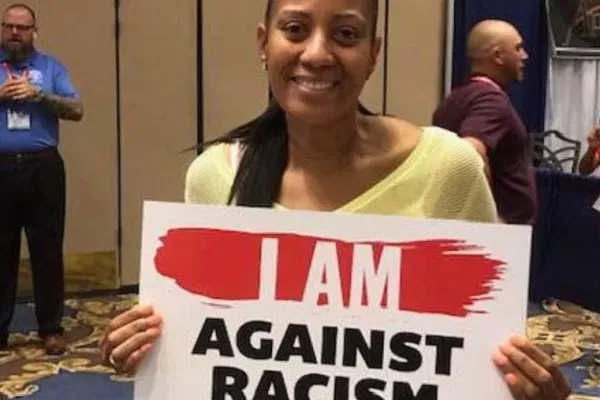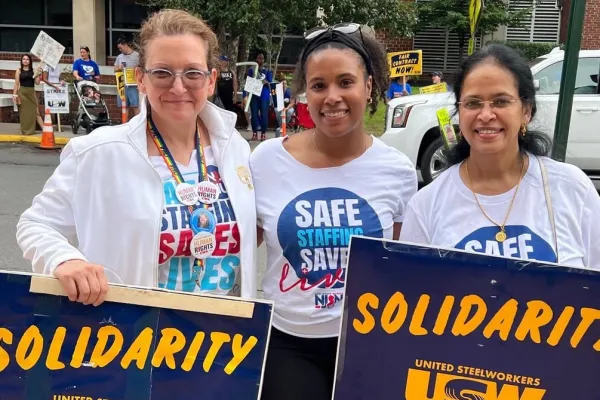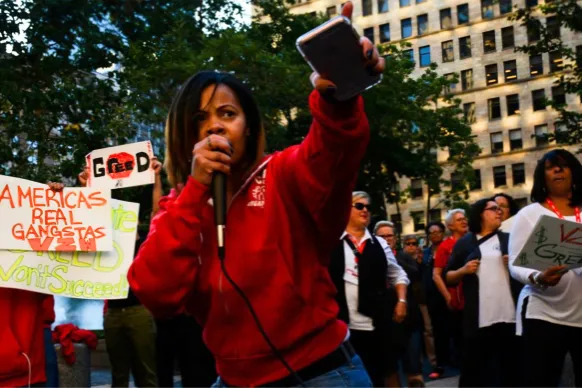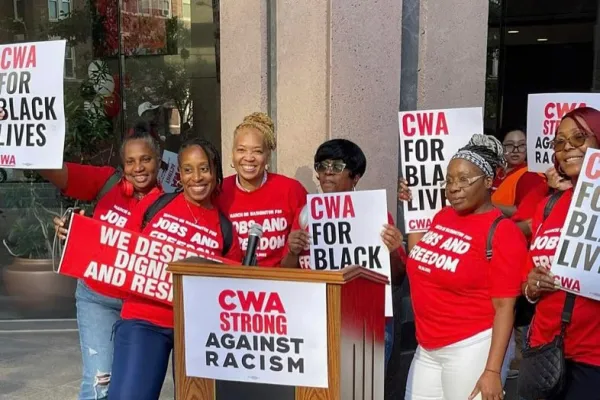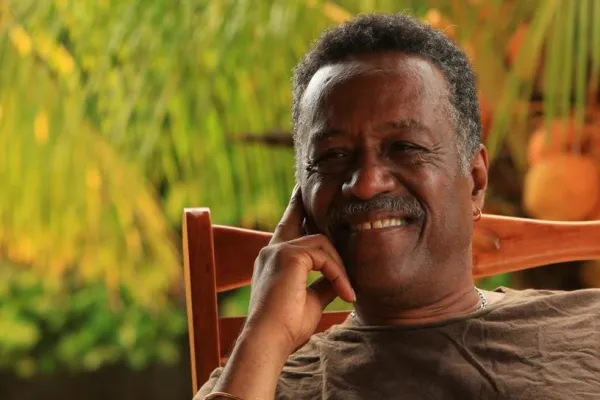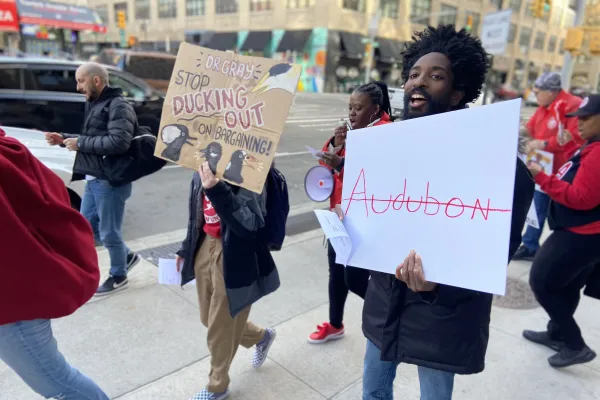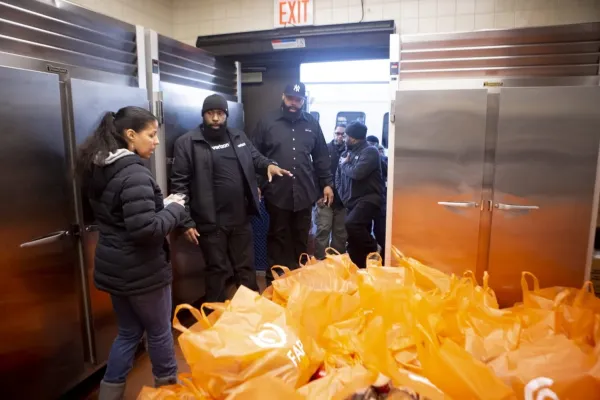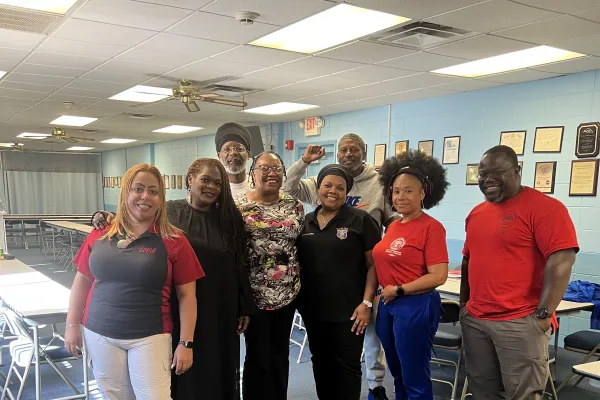CWA Human Rights Committee in District 1
“The ultimate tragedy is not the oppression and cruelty by the bad people but the silence over that by the good people.”
Dr. Martin Luther King, Jr.
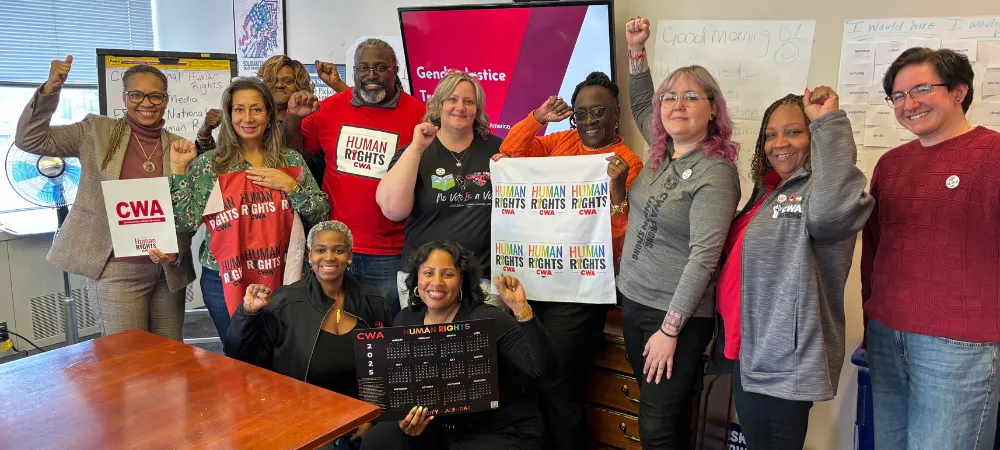
Human Rights are under attack—and we won't stand for it! We can no longer afford to allow systems of oppression and hatred to create division between us while greedy corporations and the ultra-rich reap the benefits of our hard work.
Throughout our union's history, CWA activists have been champions and protectors of democracy and human rights. We've fought for the abolishment of child labor, for equal voting rights for African Americans and for women, and we've been there throughout countless great movements in this nation's history to build a more just and inclusive society for people of all races, genders, sexual orientation, nationalities, religious beliefs, and socio-economic statuses.
But there is always more work to be done - and we encourage everyone to be a part of it!
The cornerstone of unions is to ensure just and equal treatment on the job and in society. CWA's Human Rights Committee aims to create space for CWA activists to come together and ensure that Human Rights issues are central to CWA’s work on all three sides of the triangle: bargaining, organizing and political/legislative work.
Our Core Principles & Priorities
- Hold elected officials accountable to the people by supporting public and small donor financing initiatives and increasing our Political Action Fund contributions.
- Make sure everyone is treated fairly at work by negotiating contracts that protect working people against discrimination based on gender identity.
- Protect the right to vote by challenging voter suppression legislation and advocating for the reinstatement of voting privileges to disenfranchised citizens.
- Secure good, family and community supporting jobs by actively opposing the outsourcing and offshoring of American jobs.
- Improve healthcare access by advocating for legislation providing quality health care and a secure retirement for American workers.
- Protect working people from the threat of deportation by urging Congress to pass legislation that provides a path to citizenship for immigrants.
- Decriminalize marginalized communities by collaborating with grassroots organizations to pass criminal justice reform.
Program Goals
- Work to fully integrate Civil Rights and Women’s issues within the core work of the union
- Expand CWA’s network of Human Rights Activists by creating a structured, national network of socially conscious union and community organizers
- Increase grassroots activity on Civil Rights and Women’s issues directly impacting the working class
- Increase visibility of CWA Civil Rights & Equity and Women’s Committee in communities
- Provide support to grassroots community organizations actively engaged with members on campaigns related to CWA’s broader goals for social and economic justice
Celebrating Asian American, Native Hawaiian, and Pacific Islander Heritage Month
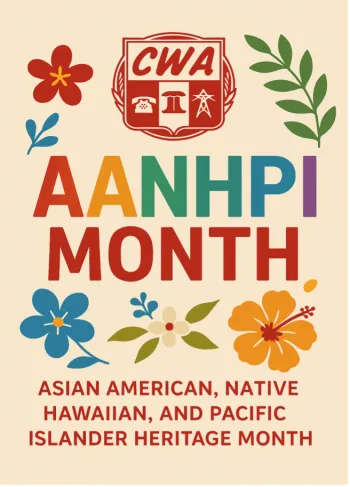
May is Asian American, Native Hawaiian, and Pacific Islander (AANHPI) Heritage Month—a time to honor the deep and lasting contributions AANHPI communities have made to the labor movement in the United States. From agriculture to domestic work to academic and policy leadership, AANHPI individuals have shaped the direction of unions through courageous organizing and advocacy. This month is an opportunity to celebrate not only cultural heritage but also the powerful legacy of labor activism that has strengthened the fight for workers’ rights across industries.
Key figures like Larry Itliong and Philip Vera Cruz were instrumental in organizing the 1965 Delano Grape Strike, uniting Filipino and Mexican farmworkers to demand fair wages and better working conditions—an alliance that led to the formation of the United Farm Workers. In the realm of domestic labor, Ai-Jen Poo has led national efforts to protect the rights of domestic workers, many of whom are immigrant women of color, through the National Domestic Workers Alliance. Meanwhile, leaders like Kent Wong have focused on education and leadership development, ensuring that the next generation of AANHPI unionists are prepared to carry the movement forward.
Unions today are stronger because of the vision and resilience of AANHPI leaders past and present. As we celebrate AANHPI Heritage Month, labor organizations have a vital role to play in recognizing these contributions, uplifting AANHPI voices, and fostering inclusive leadership at every level. By honoring this rich history and continuing the work of these trailblazers, we move closer to building a truly equitable labor movement for all.
Black History Month Spotlight: Kim Edwards, CWA Local 1298
Women's History Month Spotlight: Nicole Walters, CWA Local 1077
Women's History Month Spotlight: Shannon Gomes, CWA Local 1091
Women's History Month Spotlight: Karen Leemou, CWA Local 1101
Women's History Month Spotlight: Cheryl Drumgold
Black History Month Spotlight: Dennis Serrette
Black History Month Spotlight: Rodrick Leary, CWA Local 1180
Black History Month Spotlight: Sean Reynolds, CWA Local 1109
Black History Month Spotlight: Tameeka Chang, CWA Local 1040

